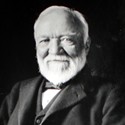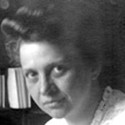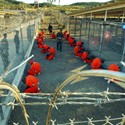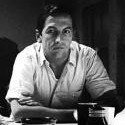Digital Projects

The Carnegie Corporation of New York Oral History Project was a forty-year undertaking conducted in three phases.
Phase One of the projects began in 1966 and was completed in 1974. The 479 hours of testimony and 9,948 pages of transcript gathered in this phase reflect the thinking of Corporation officers, staff members, and grantees and offer a rich portrait of the Corporation's evolution over the first 58 years of its existence. The interviewees discuss the organization's work in adult education, cognitive research, educational testing, library science, music education, national security, teacher education, and social-science research generally.
Phase Two of the project, begun in 1996, traces the continuity of many of these programs across the second half of the twentieth century and the Corporation's expansion into global funding strategies in the areas of peace, scientific research, and international cooperation. Phase Two of the project covers the period between 1966 and 1997 of the Corporation's history.
Phase Three of the project was conducted between October 2011 and September 2013 and produced 150 hours of interview, including a significant amount recorded on video. Focusing on Dr. Gregorian's fifteen-year tenure as President of CCNY the project provides a close examination of the growth and development of the programs and initiatives that represent the Corporation's philanthropic work, including its ongoing efforts to develop libraries and library resources in Africa, support individual scholarship on global topics, and strengthen civic education and immigrant integration in the U.S.
Explore the Carnegie Corporation Digital Archive, including transcripts, audio and video online.

Notable New Yorkers offers transcripts of interviews with ten influential New Yorkers, drawn from the Oral History Archives at Columbia.
These interviews, conducted between 1955 and 2001, open an imaginative portal into twentieth-century New York City and the ways in which it has deeply affected the culture and history of the United States and the world beyond.
With three background essays and a briefer methodological introduction for each oral history, this site also provides a revealing look at the art of the biographical interview—a methodology developed by the Columbia Center for Oral History—in which individuals who have shaped history reflect upon their lives and accomplishments.
In celebration of its 25th anniversary in 2012, the Institute for Women, Gender, and Sexuality (IRWGS) Oral History Project traces its contributions to feminist scholarship and the Institute's role within the larger context of Columbia University as a source of intellectual leadership.
The IRWGS agitated for the inclusion of feminist analysis and practice, and working to do so, in its early years, without much institutional support from the university. As the oral history project progressed, questions expanded to explore issues of generation, activism, the developments within feminism(s), evidence of increasing support of IRWGS by the university, and the challenge of addressing diversity, sexuality and other forms of social difference theoretically and as professional practice.

The Rule of Law Oral History Project, initiated in 2008, explores and documents the state of human and civil rights in the post-9/11 world.
In its first year, the project conducted a series of interviews with attorneys in order to document legal challenges against capital punishment in the United States.
Recognizing important intersections between litigation challenging the administration of capital punishment and the legal architecture of post-9/11 detention policies and practices, the Rule of Law Oral History Project expanded in 2010 to study the statutory and constitutional challenges of the use of the detention facilities at Guantánamo Bay.

In an effort to preserve the legacy of visual artist Robert Rauschenberg’s life and work, the Robert Rauschenberg Foundation, in collaboration with the Columbia Center for Oral History, created the Robert Rauschenberg Oral History Project.
This collection of firsthand accounts, as told by the artist’s family, friends, and many collaborators, is housed on the foundation's website. Upon completion of the project transcripts will also be available at in the reading room of the Oral History Archives at Columbia.
The collection is a welcome addition to a 1977 oral history interview with Rauschenberg, which is was conducted as part of the New York Art World oral history project.